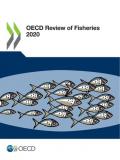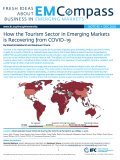The landscape of business has been radically transformed. Discussions about business action on sustainability are now taking place against a COVID-shaped backdrop of geopolitical and economic shifts, growing – and increasingly visible – inequality, heightened awareness of systemic flaws and human vulnerability, and societal fractures and polarisation. In addition, many businesses are operating in regions with high levels of government, corporate and private debt and growing levels of unemployment. CISL invited close friends, Senior Associates and Fellows to a series of conversations to explore the implications of these challenges and transformations for business action on sustainability. This report provides an overview of the key insights that emerged from these discussions.
Tourism increasingly plays a central role in Uganda’s economy, while featuring strongly in COVID-19 recovery responses. The tourism sector offers opportunities to generate income and jobs while protecting Uganda’s vast wildlife and biodiversity, and strengthening cultural heritage.
This policy note reviews the challenges and opportunities that are central to the transition of the Republic of Bulgaria’s key marine-based economic sectors to blue economic development.

This report aims to support policy makers and sector stakeholders in their efforts to deliver sustainable and resilient fisheries that can provide jobs, food, and livelihoods for future generations.

This note explores the factors in specific tourism destinations that contribute to pandemic-related vulnerability, as well as the factors that support the resilience of the tourism sector. Examining all these factors together provides a snapshot of the countries as well as the subsectors that are most likely to recover first, as well as those that will require greater support to weather and recover from the crisis.
